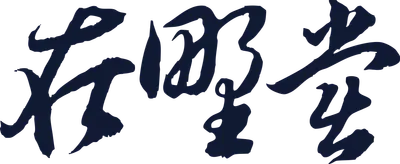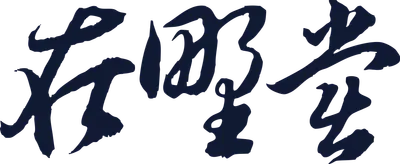作者:朱虞夫 编辑:鲁慧文 责任编辑:罗志飞
王炳章点火九州
1998年二月初,王炳章博士“风风火火闯九州”,来到杭州。那天,老友毛庆祥邀我早上去开元路口的“开元茶室”喝茶,见见民主墙时期的老朋友们。他对王博士来杭的事只字未提。
我来到茶室,看到王东海、毛庆祥、王荣清、戚惠民等老友,但是大家都没有泡茶,甚至都没有坐下来,我感到气氛有点奇怪,但也不方便问,就自己拉一把椅子坐了下来。
不一会儿,王东海出去了,然后毛庆祥出去了,戚惠民与我在寒暄了几句也去“上厕所”了,久久不回。剩下我和王荣清面面相觑,有一句没一句的聊了一会,手足无措,实在无趣,就悻悻然各自回家了。
事后方知,当时他们是把王荣清和我带去做掩护,因为圈内一直认为王有些不可靠,而我在民主墙以后已经脱离多年,怕我们去见王博士会造成危害,也为了他们去少年宫的安全,把我们留在茶室吸引公安的注意力。
但是那天去少年宫见王博士的人没有一个认得王博士,只是感觉来人风度很好,自我介绍是“做医生的”。在谈到“那人”的谈话内容时,见过的人都提到,“那人”说要他们成立政党,但是大家都认为目前成立政党风险太大,时机不成熟,只能以后再说。基于大家尚对我有疑虑,我也不方便置喙,只是感到与王博士缘慳一面,殊为抱憾。
四月份的某天,我去王东海家(我供职的上城区房管局离他家不远,我经常顺路去他那里转转),王东海有点认真地问我:“虞夫,你对组党怎么看?”
“好啊!”我说。
“为什么?那样是不是风险太大了?”
“九州生气恃风雷,当前政治改革停滞不前,当局既想从西方得到经济利益,又不愿顺世界潮流而行,进行承诺已久的政治改革。西方白左也自欺欺人、一厢情愿地陶醉在当局的虚假宣传中,未来堪忧。当局目前还不想与西方交恶,信誓旦旦不走老路,可是只听楼梯响,不见人下来。目前组党的风险相对比较小,我们不妨促一促。
“许多年来,我们生活在这头猛兽的暴虐之下,如今它难以为继,向西方示好,说自己不再残虐老百姓,西方相信了它的说辞,以为绥靖政策有了成效。没人愿意揭破它的真面目。它占着一大块地盘在呼呼装睡,老百姓的生存环境日显窘迫,我们不妨去推它一下,要么它挪一挪身子,给老百姓让出一些活动空间,要么让它露出本来面目——吃了我们。”
“你有没有想过,组党是高压线,会坐牢的。”王东海说。
“是的,我们既然投身民运,就应该有坐牢的思想准备。既得利益集团不会轻易放弃自己的特权。听说它们最近向国际社会宣称将签署联合国的重要人权文件《公民权利和政治权利国际公约》,这是一个重大信号,有可能不久后会开放党禁,当然也有可能不开放。有人会问,既然要开放,你们何必冒这样的风险,等开放了再组党吧。问题是,它们已经在历史上玩过多次帽子手法,我们民运人士作为社会压力集团,主动提出要求,将计就计,将球踢给对方,让对方的行径暴露在众目睽睽之下。”
“台湾如果没有民进党的顽强抗争,蒋经国未必会开放党禁,一举使台湾实现了民主转型。当台湾开放党禁后,一窝蜂地许多人都去注册政党,数量令人咋舌,却没几天就关门大吉了,只有民进党赢得了人心,因为他们在白色恐怖时期努力奋斗过,坐过牢,作出过牺牲,是个有责任、有担当的政党。”
王东海认同了我的观点,虽然没有说什么,但是我知道,二月初王炳章先生播下的种子,已经开始在他们心里发芽了。他们在酝酿组党的事了。
其时,我还没有见过王有才。大约在九六年,老朋友陈立群在与我聊天时,希望我将78—79年杭州民主墙的事写点回忆录,我就写了《盗火者—杭州79民运回忆》,立群看后拿给王有才看,王有才看后对立群说“你们那时候搞得很好啊!”并有结识我的意愿,立群回复了我。
1998年6月25日,单位组织员工去中山中路的上城区房管局“普法学习”,中午我顺便去王东海家,王东海家里没人,大门、房门都开着,客厅中间的方桌上放着一沓纸,我拿起来看,一份是《中国民主党成立宣言》,另一份是向浙江省民政厅申请成立中国民主党浙江筹委会的报告,申请人王有才、王东海和林辉。大约过了十几分钟,门外走廊上有人进来,到了门口脚步停了。少顷,我听王东海在说:“这个就是朱虞夫呀。”原来走在前面的是王有才,他走到门口,看到屋里有个戴头盔的大个子,心里一惊,以为都还没去申请,警察就已经上门来了。
他们三人进来后,说起这场误会,大家哈哈一笑。王有才向我说起他们三人准备下午去申请的事,问我对这事有什么看法,我想到王东海太太程云惠身怀六甲,即将临盆,如果王东海此去被扣,程云惠会陷入困境,于是我对王东海说,把你的名字换成我吧,你万一出了事,阿惠谁来照顾。不承想王东海说,我如果回不来,阿惠你来照顾,你照顾我放心的。王有才也说,这事已经定了,不要改了,我们如果进去的话,你们在外面声援接着干。
转眼一点多了,他们要去民政厅递交申请,我也要去单位了。一起走到楼下,在东太平巷窄窄的巷子里,骤起的凉风吹乱了大家的头发,我一一与他们握手告别,林辉紧紧地握着我的手,我心里涌上了“萧萧易水”的句子。
整个下午,我都牵挂着他们三人的安危,从三点后接连给王东海打了好几个电话,他都没接。直到快五点的时候,王东海接了电话,我问他申请注册的事,王东海说民政厅办事人员说,这种事没有遇到过,叫他们把申请材料放在那里,交给领导“研究研究”。民政厅对这种情况只能按《社团法》处理:需要申请人提供五十个以上成员的名单;秘书长以上人员的简历和五万元注册资金。
王有才的安排很有策略,这天是克林顿访华到达西安的日子,谅不至于在国际媒体的焦点关注下抓几个政治异己分子添乱。再则,其时的浙江省委书记李泽民是一个比较开明的人士,不希望开历史倒车。民主党兴,德国《镜报》记者问李鹏中国国内组党的事,李鹏说这是决不允许的,不久张德江取代李泽民,准备对浙江的民主党人展开镇压。在李鹏表态后,江泽民也说要把民主党消除在“萌芽状态”,2002年面对舆论汹汹的国际压力,余怒未消的江来浙江讲他的“三个代表”,说“有的地方出了怪事,不解决、不报告。”推脱长达半年多的民主党组党事件他一无所知。中国民主党的组党,迫使共产党将自己包装成“全民党”,抛出了所谓的“三个代表”。
王有才在去浙江省民政厅公开申请成立中国民主党的同时,已经在网上向外界作了公布,一时间成为了海外媒体的关注焦点,海外媒体纷纷来电采访报道,海外民运也十分踊跃地给予支持和谋划。王炳章先生不遗余力地联系我们,他与王希哲、连胜德是最活跃的支持者。我几乎每天都接到王炳章先生的电话,他明确告诉我这是一个转瞬即逝的窗口期,与其等着克林顿红利消退,等着他们“研究”完了腾出手来镇压,不如趁这空档做大做强。王博士说:“虞夫,你们趁着这个机会到街路上去发展中国民主党成员,见一个发展一个,抓紧做大做强,形成势了就不容易被镇压了。”
The Origins of the China Democracy Party
Author: Zhu Yufu · Editor: Lu Huiwen · Chief Editor: Luo Zhifei
Translator: Lu Huiwen
Dr. Wang Bingzhang Ignites the Nation
In early February 1998, Dr. Wang Bingzhang arrived in Hangzhou during his whirlwind tour across China, dubbed “sweeping through the nine provinces.” That day, my old friend Mao Qingxiang invited me for morning tea at the “Kaiyuan Teahouse” on Kaiyuan Road to catch up with some friends from the Democracy Wall era. He never mentioned Dr. Wang’s arrival.
At the teahouse, I saw familiar faces—Wang Donghai, Mao Qingxiang, Wang Rongqing, and Qi Huimin—but none of them were drinking tea, nor had they even sat down. I sensed something odd in the atmosphere, but didn’t press the issue. I simply pulled up a chair and sat down.
Before long, Wang Donghai left. Then Mao Qingxiang. Qi Huimin chatted briefly with me before also excusing himself “to the restroom,” and never came back. That left just Wang Rongqing and me sitting awkwardly, making small talk. Eventually, feeling out of place and without purpose, we each left in disappointment.
I later learned that they had taken Wang Rongqing and me along as decoys. Within the dissident circle, there were concerns that Wang Rongqing was unreliable, and I—having withdrawn from activism after the Democracy Wall movement—was also viewed with caution. They feared that bringing us to meet Dr. Wang might jeopardize his safety. To ensure their own meeting at the Children’s Palace would go unnoticed, they left us behind at the teahouse to distract the security police.
Ironically, none of the people who went to meet Dr. Wang actually recognized him. They only remarked afterward that the visitor was well-mannered and introduced himself as “a doctor.” In recounting the conversation, they all remembered that “this man” spoke about founding a political party. However, everyone felt the risks were too high and the timing was not right—perhaps later, they said. Since I was still viewed with some suspicion, I didn’t comment. I was simply left with a sense of regret for having missed the chance to meet Dr. Wang in person.
One day in April, I stopped by Wang Donghai’s home—my office at the Shangcheng District Housing Bureau was nearby, and I often dropped in on him during lunch breaks. That day, Wang Donghai seemed unusually serious. He asked me, “Yufu, what do you think about founding a political party?”
“Great idea,” I replied.
“Why? Isn’t that too risky?”
I said, “A nation’s vitality relies on thunder and storm. Political reform has stagnated. The regime wants economic gains from the West, but refuses to align with global democratic norms or fulfill its long-promised political reforms. Western liberals deceive themselves, indulging in the regime’s propaganda. The future is bleak. The government doesn’t want to antagonize the West just yet—it still solemnly swears ‘not to return to the old path.’ But all we hear are footsteps on the stairs—no one actually comes down. Now might be a relatively low-risk moment for us to push for action.”
“For years, we’ve lived under the tyranny of a beast. Now it’s growing weak, trying to appear benevolent to the West. It claims it no longer brutalizes its people, and the West believes it—thinking appeasement has worked. But no one wants to expose its true nature. It lies on this vast land, pretending to sleep, while ordinary people find it harder and harder to survive. We might as well give it a push—either it shifts and gives people some breathing room, or it reveals its true form: devouring us.”
“But have you thought this through?” Wang Donghai asked. “Starting a political party is a red line. You’ll end up in prison.”
“Yes,” I said. “If we commit to the democratic movement, we must be mentally prepared for prison. The vested interests won’t easily give up their privileges. I heard the regime recently claimed it would sign the UN’s International Covenant on Civil and Political Rights. That’s a significant signal—it might mean they’ll soon lift the ban on forming parties. Of course, they also might not. Some people would ask: If the ban is going to be lifted, why take the risk now? Why not wait and start a party legally then? The problem is…”
“They’ve already played this hat trick many times throughout history,” I said. “As pro-democracy activists, we act as a pressure group. By proactively making our demands, we can turn their own strategy back on them. Let’s kick the ball into their court—let their actions be exposed to public scrutiny.”
“Look at Taiwan. If it hadn’t been for the Democratic Progressive Party’s persistent resistance, Chiang Ching-kuo might never have lifted the party ban, and Taiwan wouldn’t have made its democratic transition. When the ban was lifted, dozens of new parties popped up overnight, but most of them folded just as quickly. Only the DPP won the people’s hearts—because they had fought during the White Terror, endured prison, made sacrifices. That’s what made them a responsible and committed political party.”
Wang Donghai didn’t respond directly, but I could tell he agreed. I knew then that the seed Dr. Wang Bingzhang had planted back in early February was beginning to sprout. They were seriously considering forming a political party.
At that time, I still hadn’t met Wang Youcai. Back in 1996, my old friend Chen Liqun encouraged me to write a memoir about the 1978–1979 Hangzhou Democracy Wall movement. I wrote The Fire Thief: A Memoir of the 1979 Democracy Movement in Hangzhou. After reading it, Liqun gave it to Wang Youcai. Wang’s response was, “You guys did great back then!” and he expressed an interest in meeting me. Liqun relayed that back to me.
On June 25, 1998, our workplace had arranged a “Legal Awareness Training” session at the Shangcheng District Housing Bureau on Zhongshan Middle Road. During lunch, I stopped by Wang Donghai’s home. No one was there—the front and inner doors were open. On the table in the center of the living room lay a stack of papers. I picked them up. One was the Declaration on the Founding of the China Democracy Party; the other was an application to the Zhejiang Provincial Civil Affairs Bureau to establish the Zhejiang Preparatory Committee of the China Democracy Party. The listed applicants were Wang Youcai, Wang Donghai, and Lin Hui.
About ten minutes later, I heard footsteps in the hallway. Someone stopped at the doorway. A moment later, I heard Wang Donghai say…
“This must be Zhu Yufu,” I heard Wang Donghai say. It turned out the man approaching the doorway was Wang Youcai. He had stopped in his tracks at the sight of a large man wearing a helmet sitting in the room, startled—he thought the police had already shown up before they even submitted the application.
The three of them entered, and when the misunderstanding was cleared up, we all laughed. Wang Youcai then explained their plan to submit the application to the Civil Affairs Bureau that afternoon and asked what I thought of it. I immediately thought of Donghai’s wife, Cheng Yunhui, who was heavily pregnant and nearing delivery. If anything were to happen to Donghai, she’d be left in a very difficult situation. So I told Donghai, “Let me take your name instead. If something happens to you, who’s going to take care of Ah Hui?” But to my surprise, Donghai replied, “If I don’t come back, you take care of Ah Hui. I trust you with that.” Wang Youcai added, “The decision has already been made. Don’t change it. If we end up inside, you all keep the work going from the outside.”
By 1 p.m., it was time for them to head to the Civil Affairs Bureau, and I needed to return to work as well. We all walked downstairs together. In the narrow alley of Dongtaiping Lane, a sudden cool breeze blew, rustling our hair. I shook hands with each of them to say goodbye. Lin Hui held onto my hand tightly—at that moment, the ancient line “the wind whistles at the Yi River” surfaced in my heart.
All afternoon, I worried about their safety. After 3 p.m., I called Donghai several times, but he didn’t pick up. Finally, just before 5 p.m., he answered. I asked how the application went. Donghai said the staff at the Civil Affairs Bureau told them they’d never dealt with this kind of request before. They were asked to leave the materials for further review by higher-ups. The officials said the only way to process it was under the “Regulations on the Registration of Social Organizations,” which required a list of more than 50 founding members, resumes of all officers above the rank of Secretary-General, and a minimum of 50,000 RMB in startup funds.
Wang Youcai had timed this well. That day, President Clinton was arriving in Xi’an on his state visit to China, making it unlikely that the authorities would arrest political dissidents and create international headlines. Moreover, Zhejiang’s Party Secretary at the time, Li Zemin, was known to be relatively open-minded and unlikely to backtrack on reform.
As news of the China Democracy Party’s formation spread, a reporter from Germany’s Der Spiegel asked Li Peng about it. Li Peng responded, “This will never be allowed.” Shortly after, Zhang Dejiang replaced Li Zemin and began preparing a crackdown on the CDP in Zhejiang. After Li Peng’s remarks, Jiang Zemin declared that the CDP must be eliminated “in the bud.” In 2002, still seething, Jiang visited Zhejiang under mounting international pressure and gave a speech about his “Three Represents” theory. He said, “Strange things have happened in some places—unresolved and unreported,” distancing himself from the party formation incident, as if he had known nothing about it for over half a year. Ironically, the CDP’s very existence forced the Communist Party to rebrand itself as the “party of the people” and roll out the so-called “Three Represents” theory.
Even as Wang Youcai submitted the application to the Zhejiang Civil Affairs Bureau, he had already made the move public online. Within hours, it became a focal point for overseas media. Calls and requests for interviews poured in. Overseas pro-democracy activists rallied in support and began strategizing. Dr. Wang Bingzhang was tireless in his efforts to coordinate with us. Alongside Wang Xizhe and Lian Shengde, he was among our most active overseas supporters. I received calls from Dr. Wang almost daily. He told me in no uncertain terms: “This is a brief window of opportunity. Don’t wait for the Clinton honeymoon to end, or for them to ‘finish reviewing’ and come down hard on you. Use this breathing space to expand quickly.” He said, “Yufu, go out there on the streets and recruit CDP members. Meet one, develop one. Grow fast. Once you gain momentum, it won’t be so easy for them to crush you.”
⸻



